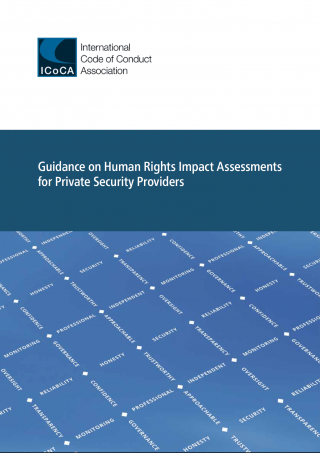Local Communities
130 articles:
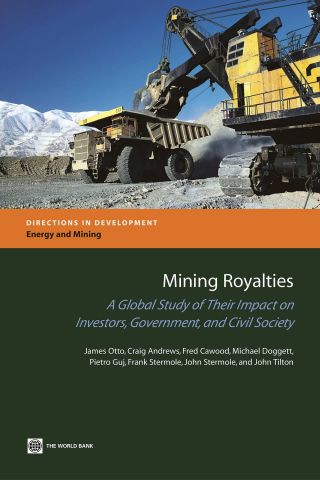
Mining Royalties: A Global Study of their Impact on Investors, Government, and Civil Society (The World Bank, 2006)
Mining Royalties: A Global Study of their Impact on Investors, Government, and Civil Society (The World Bank, 2006)

Child Rights and Security Handbook: An implementation companion to the Child Rights and Security Checklist (UNICEF, 2018)
Child Rights and Security Handbook: An implementation companion to the Child Rights and Security Checklist (UNICEF, 2018)

Responsibly undertaking resettlement activities is one means by which companies can positively contribute to development

Site-level Grievance and Community Response Mechanisms: A Practical Design and Implementation Guide for the Resource Development Industry (MAC, 2015)
Site-level Grievance and Community Response Mechanisms: A Practical Design and Implementation Guide for the Resource Development Industry (MAC, 2015)

A Business Reference Guide: United Nations Declaration on the Rights of Indigenous Peoples (UN Global Compact, 2013)
A Business Reference Guide: United Nations Declaration on the Rights of Indigenous Peoples (UN Global Compact, 2013)

FPIC and the Extractive Industries: A Guide to Applying the Spirit of Free, Prior and Informed Consent in Industrial Projects (IIED, 2013)
FPIC and the Extractive Industries: A Guide to Applying the Spirit of Free, Prior and Informed Consent in Industrial Projects (IIED, 2013)
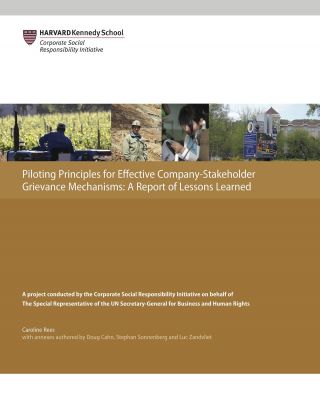
Piloting Principles for Effective Company-Stakeholder Grievance Mechanisms: A Report of Lessons Learned (Rees, 2011)
Piloting Principles for Effective Company-Stakeholder Grievance Mechanisms: A Report of Lessons Learned (Rees, 2011)

Good Practice Note: Addressing Grievances from Project-Affected Communities (IFC, 2009)
Good Practice Note: Addressing Grievances from Project-Affected Communities (IFC, 2009)

Mapping Grievance Mechanisms in the Business and Human Rights Arena (CSR Initiative, 2008)
Mapping Grievance Mechanisms in the Business and Human Rights Arena (CSR Initiative, 2008)

Rights-Compatible Grievance Mechanisms: A Guidance Tool for Companies and Their Stakeholders (CSR Initiative, 2008)
Rights-Compatible Grievance Mechanisms: A Guidance Tool for Companies and Their Stakeholders (CSR Initiative, 2008)

Resource/Extractive Companies and Indigenous Peoples Engagement: Recipe for Dialogue Project (BSR and FPW, 2004)
Resource/Extractive Companies and Indigenous Peoples Engagement: Recipe for Dialogue Project (BSR and FPW, 2004)

Integrating Human Rights into Environmental, Social and Health Impact Assessments (IPIECA, 2013)
Integrating Human Rights into Environmental, Social and Health Impact Assessments (IPIECA, 2013)

Preventing Conflict in Exploration: A Toolkit for Explorers and Developers (PDAC, World Vision Canada, CDA, 2012)
Preventing Conflict in Exploration: A Toolkit for Explorers and Developers (PDAC, World Vision Canada, CDA, 2012)

A Business Guide to Conflict Impact Assessment and Risk Management (UN Global Compact, 2002)
A Business Guide to Conflict Impact Assessment and Risk Management (UN Global Compact, 2002)

Use of Security Forces: Assessing and Managing Risks and Impacts Guidance for the Private Sector in Emerging Markets (IFC, 2017)
Use of Security Forces: Assessing and Managing Risks and Impacts Guidance for the Private Sector in Emerging Markets (IFC, 2017)

Private Security Governance National Action Plans (NAPS) on Business and Human Rights (DIHR, Danish Institute for Human Rights & DCAF, Geneva Centre for Security Sector Governance, 2019)
Private Security Governance National Action Plans (NAPS) on Business and Human Rights (DIHR, Danish Institute for Human Rights & DCAF, Geneva Centre for Security Sector Governance, 2019)

Legislative Guidance Tool for States to Regulate Private Military and Security Companies (DCAF, 2016)
This Guidance Tool is aimed at parliamentarians and law and policymakers who undertake to develop new or to update existing laws for national regulation of the private military and security industry.

Management System for Quality of Private Security Company Operations - Requirements with Guidance (PSC.1 Standard)
Management System for Quality of Private Security Company Operations - Requirements with Guidance (PSC.1 Standard)

The Sarajevo Client Guidelines for the Procurement of Private Security Companies (SEESAC, 2006)
The Sarajevo Client Guidelines for the Procurement of Private Security Companies (SEESAC, 2006)

Dispute or Dialogue? Community perspectives on company-led grievance mechanisms (IIED, 2013)
Dispute or Dialogue? Community perspectives on company-led grievance mechanisms (IIED, 2013)

Responsible Business Advancing Peace: Examples from Companies, Investors & Global Compact Local Networks (UN Global Compact and PRI, 2013)
Responsible Business Advancing Peace: Examples from Companies, Investors & Global Compact Local Networks (UN Global Compact and PRI, 2013)

Ten Steps to Promote the Voluntary Principles on Security and Human Rights: The Peruvian Working Group Model (DCAF, ICRC, Socios Peru, and PeaceNexus, 2016)
Ten Steps to Promote the Voluntary Principles on Security and Human Rights: The Peruvian Working Group Model (DCAF, ICRC, Socios Peru, and PeaceNexus, 2016)

Improving Field Implementation of the Voluntary Principles for Security and Human Rights in South Kivu - DRC
Improving Field Implementation of the Voluntary Principles for Security and Human Rights in South Kivu - DRC

VPs working group in Lubumbashi: Supporting the management of security and human rights risks in the former Katanga - DRC
VPs working group in Lubumbashi: Supporting the management of security and human rights risks in the former Katanga - DRC

Developing resources to support training of public security forces assigned to extractives operations in Kenya
Developing resources to support training of public security forces assigned to extractives operations in Kenya

Supporting the sharing of lessons learnt on security and human rights good practice (DCAF and Fund For Peace FFP)
Supporting the sharing of lessons learnt on security and human rights good practice (DCAF and Fund For Peace FFP)

Strengthening civil society oversight capacity for the private security sector in Africa
Strengthening civil society oversight capacity for the private security sector in Africa

From Commitment to Impact: A Guide for Local Working Groups on Business, Security and Human Rights (DCAF and Fund For Peace FFP)
From Commitment to Impact: A Guide for Local Working Groups on Business, Security and Human Rights (DCAF and Fund For Peace FFP)

From Commitment to Impact: Experiences from Local Working Groups on Business, Security and Human Rights - Full Report (DCAF and Fund For Peace FFP)
From Commitment to Impact: Experiences from Local Working Groups on Business, Security and Human Rights - Full Report (DCAF and Fund For Peace FFP)

Sharing Good Practices Between Private Security Regulators in the Southern African Region
Sharing Good Practices Between Private Security Regulators in the Southern African Region

Impact of SHRIM Donors Support to DCAF Activities in the Democratic Republic of the Congo (DRC)
Impact of SHRIM Donors Support to DCAF Activities in the Democratic Republic of the Congo (DRC)

Human Rights Impact Assessment: Guidance and Toolbox (Danish Institute for Human Rights DIHR)
Human Rights Impact Assessment: Guidance and Toolbox (Danish Institute for Human Rights DIHR)

Human Rights and Business Learning Tool (Office of the UN High Commissioner for Human Rights and Global Compact, OHCHR and UNGC, 2013)
Human Rights and Business Learning Tool (Office of the UN High Commissioner for Human Rights and Global Compact, OHCHR and UNGC, 2013)

Indigenous Peoples and the Oil and Gas Industry: Context, Issues and Emerging Good Practice (DCAF and ICRC)
Indigenous Peoples and the Oil and Gas Industry: Context, Issues and Emerging Good Practice (DCAF and ICRC)
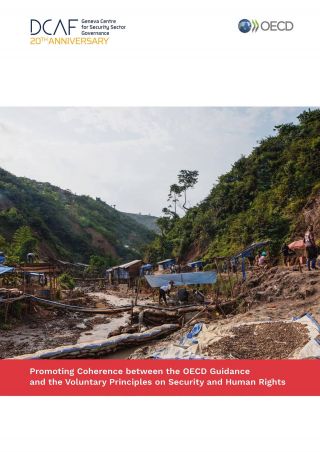
Promoting Coherence between the OECD Guidance and the Voluntary Principles on Security and Human Rights (DCAF, 2020)
Promoting Coherence between the OECD Guidance and the Voluntary Principles on Security and Human Rights (DCAF, 2020)

Seven Indicators of Corporate Best Practice in International Humanitarian Law (Australian Red Cross and RMIT University)
Seven Indicators of Corporate Best Practice in International Humanitarian Law (Australian Red Cross and RMIT University)

Learn about International Humanitarian Law (IHL): Free online training for businesses (Australian Red Cross)
Learn about International Humanitarian Law (IHL): Free online training for businesses (Australian Red Cross)

Voluntary Principles on Security and Human Rights Implementation Guidance Tools (ICMM, ICRC, IFC and IPIECA, 2011)
Voluntary Principles on Security and Human Rights Implementation Guidance Tools (ICMM, ICRC, IFC and IPIECA, 2011)

Using Relationship Data to Improve Business Practices: Measuring Company-Community Relationships at a South African Mine (Shift, 2021)
Using Relationship Data to Improve Business Practices: Measuring Company-Community Relationships at a South African Mine (Shift, 2021)

Auditing Implementation of Voluntary Principles on Security and Human Rights (Global Compact Network Canada, 2015)
Auditing Implementation of Voluntary Principles on Security and Human Rights (Global Compact Network Canada, 2015)

Measuring Quality of Relationships: Using ICMMs‚ Understanding Company-Community Relations‚ Toolkit (Shift, 2021)
Measuring Quality of Relationships: Using ICMMs‚ Understanding Company-Community Relations‚ Toolkit (Shift, 2021)

The Voluntary Principles on Security and Human Rights: An Implementation Toolkit for Major Project Sites (World Bank Group Multilateral Investment Guarantee Agency and Anvil Mining, 2008)
The Voluntary Principles on Security and Human Rights: An Implementation Toolkit for Major Project Sites (World Bank Group Multilateral Investment Guarantee Agency and Anvil Mining, 2008)

Voluntary Principles on Security and Human Rights: Performance Indicators (International Alert, 2008)
Voluntary Principles on Security and Human Rights: Performance Indicators (International Alert, 2008)

Voluntary Principles on Security & Human Rights National-Level Implementation Guidance Note (FFP & International Alert, 2010)
Voluntary Principles on Security & Human Rights National-Level Implementation Guidance Note (FFP & International Alert, 2010)

Voluntary Principles on Security and Human Rights Implementation Guideline - An extended summary (BP, 2008)
Voluntary Principles on Security and Human Rights Implementation Guideline - An extended summary (BP, 2008)

Guidebook for Conflict Management in Mining Industry of the Kyrgyz Republic (Eurasia Foundation of Central Asia and Kalikova & Associates, 2017)
Guidebook for Conflict Management in Mining Industry of the Kyrgyz Republic (Eurasia Foundation of Central Asia and Kalikova & Associates, 2017)

Human rights due diligence in conflict-affected settings: Guidance for extractives industries (International Alert, 2018)
Human rights due diligence in conflict-affected settings: Guidance for extractives industries (International Alert, 2018)

Multinationals and Conflict – International Principles and Guidelines for Corporate Responsibility in Conflict-affected Areas (SOMO, 2014)
Multinationals and Conflict – International Principles and Guidelines for Corporate Responsibility in Conflict-affected Areas (SOMO, 2014)

A Seat at the Table: Capacities and Limitations of Private Sector Peacebuilding (CDA Collaborative, Africa Center for Dispute Settlement, PRIO, 2018)
A Seat at the Table: Capacities and Limitations of Private Sector Peacebuilding (CDA Collaborative, Africa Center for Dispute Settlement, PRIO, 2018)

Training Tool: Doing Business in Conflict-affected Countries (UN Global Compact and Maplecroft, 2013)
Training Tool: Doing Business in Conflict-affected Countries (UN Global Compact and Maplecroft, 2013)

From Red to Green Flags - The Corporate Responsibility to Respect Human Rights in High-risk Countries (Institute for Human Rights and Business, 2011)
From Red to Green Flags - The Corporate Responsibility to Respect Human Rights in High-risk Countries (Institute for Human Rights and Business, 2011)

Guidance on Responsible Business in Conflict-Affected and Hight-Risk Areas: A Resource for Companies and Investors (UN Global Compact and Principles for Responsible Investment Initiative, 2010)
Guidance on Responsible Business in Conflict-Affected and Hight-Risk Areas: A Resource for Companies and Investors (UN Global Compact and Principles for Responsible Investment Initiative, 2010)

Practical Guidance on Human Rights and Security in the Colombian ASM Industry (DCAF and the Alliance for Responsible Mining, 2021)
Practical Guidance on Human Rights and Security in the Colombian ASM Industry (DCAF and the Alliance for Responsible Mining, 2021)

Conflict-Sensitive Business Practice: Guidance for Extractive Industries (International Alert, 2005)
Conflict-Sensitive Business Practice: Guidance for Extractive Industries (International Alert, 2005)

Enabling Economies of Peace - Public Policy for Conflict-Sensitive Business (Commissioned by the UN Global Compact, 2005)
Enabling Economies of Peace - Public Policy for Conflict-Sensitive Business (Commissioned by the UN Global Compact, 2005)

War, Law and Business: A free immersive e-learning module on international humanitarian law
War, Law and Business: A free immersive e-learning module on international humanitarian law

Oil and Gas Sector Guide on Implementing the UN Guiding Principles on Business and Human Rights (Shift and IHRB, 2013)
Oil and Gas Sector Guide on Implementing the UN Guiding Principles on Business and Human Rights (Shift and IHRB, 2013)

Human Rights Due Diligence Process: A Practical Guide to Implementation for Oil and Gas Companies (IPIECA, 2012)
Human Rights Due Diligence Process: A Practical Guide to Implementation for Oil and Gas Companies (IPIECA, 2012)

Oil and Gas Industry Guidance on Voluntary Sustainability Reporting (IPIECA, API and OGP, 2015)
Oil and Gas Industry Guidance on Voluntary Sustainability Reporting (IPIECA, API and OGP, 2015)

International Standards for Responsible Business in Conflict-Affected and Fragile Environments: An Overview
International Standards for Responsible Business in Conflict-Affected and Fragile Environments: An Overview

Shared Space Under Pressure: Business Support for Civic Freedoms and Human Rights Defenders (BHRRC & ISHR, 2018)
Shared Space Under Pressure: Business Support for Civic Freedoms and Human Rights Defenders (BHRRC & ISHR, 2018)

Factsheet: How should companies manage security and human rights challenges related to artisanal and small-scale mining?
Factsheet: How should companies manage security and human rights challenges related to artisanal and small-scale mining?

Gender-responsive Due Diligence for Business Actors: Human Rights-Based Approaches (Geneva Academy, 2018)
Gender-responsive Due Diligence for Business Actors: Human Rights-Based Approaches (Geneva Academy, 2018)

How can companies respect the rights of indigenous peoples when addressing security and human rights challenges?
How can companies respect the rights of indigenous peoples when addressing security and human rights challenges?

Doing Business with Respect for Human Rights: A Guidance Tool for Companies (Shift, Oxfam and Global Compact Network Netherlands, 2016)
Doing Business with Respect for Human Rights: A Guidance Tool for Companies (Shift, Oxfam and Global Compact Network Netherlands, 2016)

Factsheet: How can companies respect the rights of human rights defenders when addressing security-related challenges?
Factsheet: How can companies respect the rights of human rights defenders when addressing security-related challenges?

What makes stakeholder engagement meaningful? 5 insights from practice (UN Global Compact Network Germany)
What makes stakeholder engagement meaningful? 5 insights from practice (UN Global Compact Network Germany)

Heightened Human Rights Due Diligence for Business in Conflict-Affected Contexts: A Guide (UNDP and UN Working Group on Business and Human Rights, June 2022)
Heightened Human Rights Due Diligence for Business in Conflict-Affected Contexts: A Guide (UNDP and UN Working Group on Business and Human Rights, June 2022)
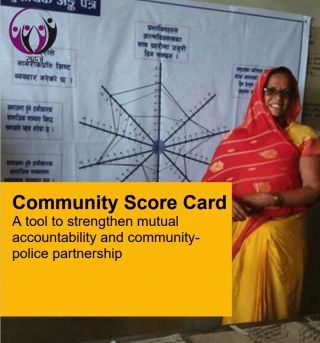
Community Score Card: A tool to strengthen mutual accountability and community-police partnership (SAHAJ and International Alert)
Community Score Card: A tool to strengthen mutual accountability and community-police partnership (SAHAJ and International Alert)

Human Rights Translated 2.0: A Business Reference Guide (Monash University, OHCHR, UNGC, 2017)
Human Rights Translated 2.0: A Business Reference Guide (Monash University, OHCHR, UNGC, 2017)

OECD Due Diligence Guidance for Responsible Supply Chains of Minerals from Conflict-Affected and High-Risk Areas (2016)
OECD Due Diligence Guidance for Responsible Supply Chains of Minerals from Conflict-Affected and High-Risk Areas (2016)

Human Rights in the Mining and Metals Industry - Overview, Managment Approach and Issues (ICMM, 2009)
Human Rights in the Mining and Metals Industry - Overview, Managment Approach and Issues (ICMM, 2009)

Start Here: Sustainability for Exploration, Development and Small Producing Mining Companies (NBS, 2014)
Start Here: Sustainability for Exploration, Development and Small Producing Mining Companies (NBS, 2014)

Countering the Resource Curse: Promoting good governance and human rights in the extractive sector in Madagascar (Search for Common Ground, 2016)
Countering the Resource Curse: Promoting good governance and human rights in the extractive sector in Madagascar (Search for Common Ground, 2016)

Women, Communities and Mining: The Gender Impacts of Mining and the Role of Gender Impact Assessment (Oxfam Australia, 2009)
Women, Communities and Mining: The Gender Impacts of Mining and the Role of Gender Impact Assessment (Oxfam Australia, 2009)

Due Diligence Guidance for Meaningful Stakeholder Engagement in the Extractive Sector (OECD, 2017)
Due Diligence Guidance for Meaningful Stakeholder Engagement in the Extractive Sector (OECD, 2017)

A Strategic Approach to Early Stakeholder Engagement - Good Practice Handbook for Junior Companies in the Extractive Industries (IFC, 2013)
A Strategic Approach to Early Stakeholder Engagement - Good Practice Handbook for Junior Companies in the Extractive Industries (IFC, 2013)

Stakeholder Engagement: A Good Practice Handbook for Companies Doing Business in Emerging Markets (IFC, 2007)
Stakeholder Engagement: A Good Practice Handbook for Companies Doing Business in Emerging Markets (IFC, 2007)

DCAF – Geneva Centre for Security Sector Governance
Business and Security Division
www.businessandsecurity.dcaf.ch
Chemin Eugène-Rigot 2E,
CH-1202 Geneva Switzerland
Tel: +41 (0) 22 730 94 18
Contact us

International Committee of the Red Cross (ICRC)
www.icrc.org
Avenue de la Paix 19, 1202 Geneva, Switzerland
Economic Adviser
Department of International Law and Policy
Tel: +41 (0) 22 734 6001
Contact us




















































